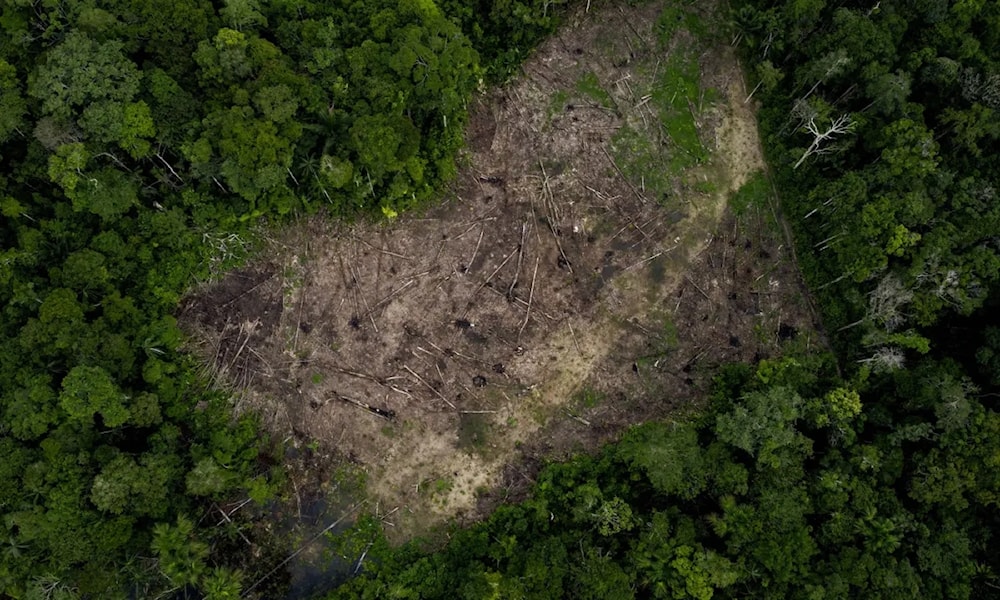Colombian Amazon deforestation surges as armed groups tighten grip
After Colombia's efforts to reduce deforestation, armed rebels revoked the ban.
-

Deforestation and the destruction of habitats in Amazon, Colombia, as seen in March 2023. (AFP)
Deforestation in the Colombian Amazon is escalating and may be reaching a record high, with armed groups exploiting the rainforest as a bargaining tool in peace talks with the government.
According to Susana Muhamad, the country's environment minister, initial data indicates that deforestation in the region surged by 40% in the first three months of this year compared to 2023, as armed groups increased their grip on the rainforest.
“We are seeing an upward trend that is quite worrying and this has two main reasons,” Muhamad told a press conference in Bogota. “The first is the very significant coercion [of local people] by armed groups in the area, and the second is obviously the favorable conditions [for fires] that have to do with the El Niño phenomenon.”
Colombia fights deforestation
In recent years, Colombia has been making strides in curbing rampant deforestation, following a 2016 peace agreement with the country's largest guerrilla group, which previously left forests vulnerable and unprotected.
In 2017, with the Revolutionary Armed Forces of Colombia (FARC) no longer patrolling the jungle, a record 219,973 hectares (544,000 acres) were lost. That said, Gustavo Petro’s government – the first leftwing administration in the country’s history – reversed the trend by negotiating with the armed rebels who have filled the Farc’s power vacuum.
The environment ministry reported a 29% decrease in deforestation across Colombia from 2021 to 2022, reaching the lowest level since 2013. Preliminary data indicates a further drop of 25% to 35% in 2023.
The drop in deforestation was primarily attributed to the directive issued by the Estado Mayor Central (EMC), a faction of dissident rebels controlling extensive areas of Colombia's southern forests. In 2022, the EMC implemented a ban on forest clearing as a strategy to secure a position at the negotiating table with Petro's government.
EMC allows deforestation
As tensions escalated in the negotiations last year, the armed rebels rescinded the ban. Instead of safeguarding the Amazon, the EMC now permits land grabbers to devastate the forests as a means of asserting control over the region and gaining leverage for more favorable negotiation terms from the government.
The hotspots were the Meta, Caquetá, and Guaviare departments – EMC strongholds and key battlegrounds in Colombia’s fight to save the rainforest.
Over the past few months, armed rebels have displaced residents, targeted environmental activists for assassination, and ejected government officials from the region.
The increasing control exerted by the EMC has compelled the government to suspend projects aimed at conserving the forest, including ecotourism ventures and a payment program designed to incentivize farmers to preserve the forest.
Read next: Hummingbird last seen in 2010 rediscovered in Colombia

 3 Min Read
3 Min Read








